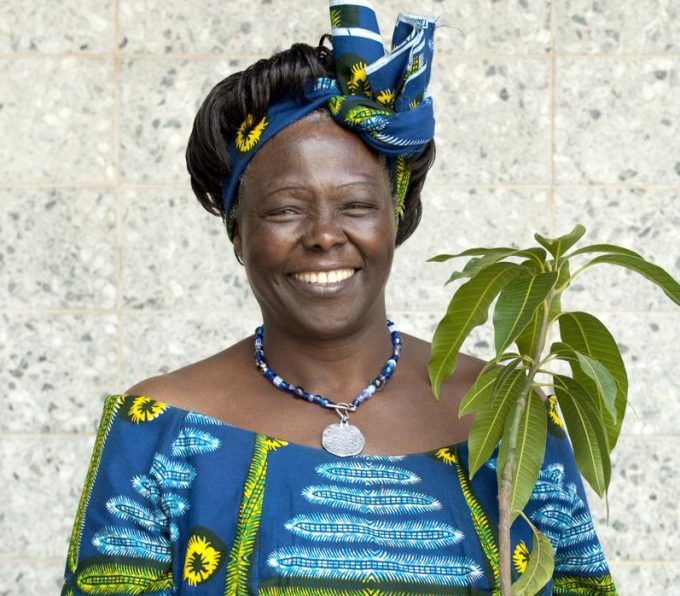
Wangari Maathai
Arushi Tewari talks about the life of renowned activist, Wangari Maathai.
Professor Wangari Maathai is a woman of many firsts. She was a renowned Kenyan social, environmental, and political activist and of course, the first African woman to win the Nobel Prize.
Professor Maathai was also the first woman in East and Central Africa to earn a doctorate degree and the first woman to chair a university department in the region. She has done phenomenal work under extremely difficult circumstances and continues to inspire people to keep fighting for what they believe in.
During Black History Month 2020, it is important that we celebrate her success and carry on her legacy. Below is a brief summary of her life events:

Toward democracy and peace
In 1985, when the United Nations held the third Global Women’s Conference in Nairobi, Professor Maathai took this opportunity to arrange seminars to present her work in Kenya and the work of the Green Belt Movement.
However, despite her initial success, in the latter half of the 1980s, the Kenyan Government came down against her and the Green Belt Movement. The single-party regime opposed many of the movement’s positions regarding democratic rights.
Do you think Wangari gave up? Never. During the first multi-party election of Kenya, in 1992, she strove to unite the opposition and for fair elections in Kenya.
In 2002, Professor Maathai was elected to represent the Tetu constituency in Kenya’s parliament. She held this position until 2007 and also served as Assistant Minister for Environment and Natural Resources in Kenya’s ninth parliament during this period.
One day she got a letter in the post. It was from Norway; she had won perhaps the highest honour a person can receive in this world. She had been given the Nobel Peace Prize. She was the first African woman to receive the Nobel Peace Prize in 2004.
Trees grow – and branch out
Professor Maathai may have been called the ‘tree lady’, but whilst planting those trees, she was also getting people together to talk about overcoming the authoritarian government in her country.
Maathai’s mobilisation of African women was not limited in its vision to work for sustainable development. She saw tree-planting in a broader perspective which included democracy, women’s rights, and international solidarity.
Her efforts to save the environment, specifically forests and public land, are well documented, but it is her bravery and tenacity to stay true to her calling that is most admirable.
Today, the Green Belt Movement’s work has continued to evolve, with the goal of furthering our efforts across our four thematic areas of work: tree planting and watersheds, gender livelihood and advocacy, climate change, and mainstream advocacy.
The Green Belt Movement (GBM) has planted over 51 million trees in Kenya. GBM works at the grassroots, national, and international levels to promote environmental conservation; to build climate resilience and empower communities, especially women and girls; to foster democratic space and sustainable livelihoods.
Wangari Maathai was a truly prolific human being and she is a name that everyone should know by heart – even in death her work enriches the world. It is people like her who stand up for what they believe in, risk their freedom, their family and their home to improve the lives of others that we should celebrate not just during Black History Month, but all year round.




